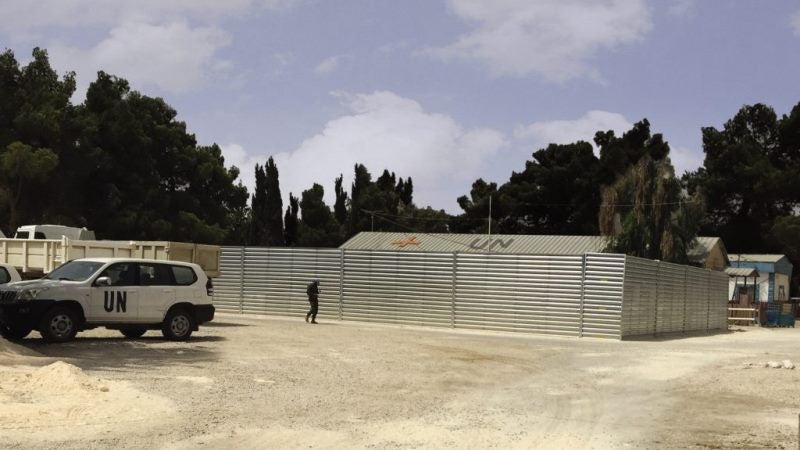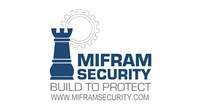

Mifram’s protective wall structures are modular protection systems constructed from galvanized steel plates with internal supports, which are filled with sand or other inert materials.
Protective walls can be supplied in different sizes and configurations for use in a wide variety of purposes and scenarios depending on client needs.
The system consists of easy to assemble and dismantlable galvanized steel panels, which can be installed quickly and simply with no tools required.
Advantages
Wall sections are provided in a variety of thicknesses, making the system suitable for protecting a versatile range of military and civilian locations.
The filling material can be sand, gravel or any other readily available, inert material, meaning only the light steel sheets must be transported to the intended site.
The system consists of galvanized steel panels that are easy to assemble and disassemble, meaning the systems can be re-used in multiple locations.
Protective walls can be used to create fences and partitions up to 5m high without the need for a wide base.
The system was successfully tested against the following threats:
- Petrol bombs and stones
- Light weapons fire up to and including 0.5in
- Heavy shrapnel and hand grenades
- Direct hit and near-miss from mortar shells up to and including 120mm
- Blast from aerial explosions and missiles according to specified threats.
- Nearby detonation of car bomb with 2.5t of explosives
A combination of threat assessments and specification allows the company to determine the required wall thickness for clients’ individual application.
Civilian use
The detachable sealed fence can be assembled quickly and effectively on site with readily available manpower and without the need for tools.
The walls can be used to conceal and isolate:
- Fires
- Floods
- Acoustic insulation
- Blocking line of site and observation
- Hostile vehicles
- Kidnappers
- Thieves and burglars
Simple and easy construction
All that is required to assemble and install the protective walls systems are a truck or light-truck to transport the various sections to the intended location, and an assembly team of three or four workers.
A digger, mechanical shovel and large bag are also recommended.
Resistance
The protective walls’ galvanized metal has proven to be resistant against a large range of threats, including:
- Extreme weather conditions
- Sand storms
- UV radiation
- Impacts
- Knives
- Corrosion
- Floods
- Intensive fires
International use
The protective wall system was, amongst other contracts, awarded a multi-year tender to protect UN bases worldwide against a range of threats.
Mifram protects UN forward bases and installations in Israel and conflict areas using barriers and road blocks, protective equipment and protective walls.

